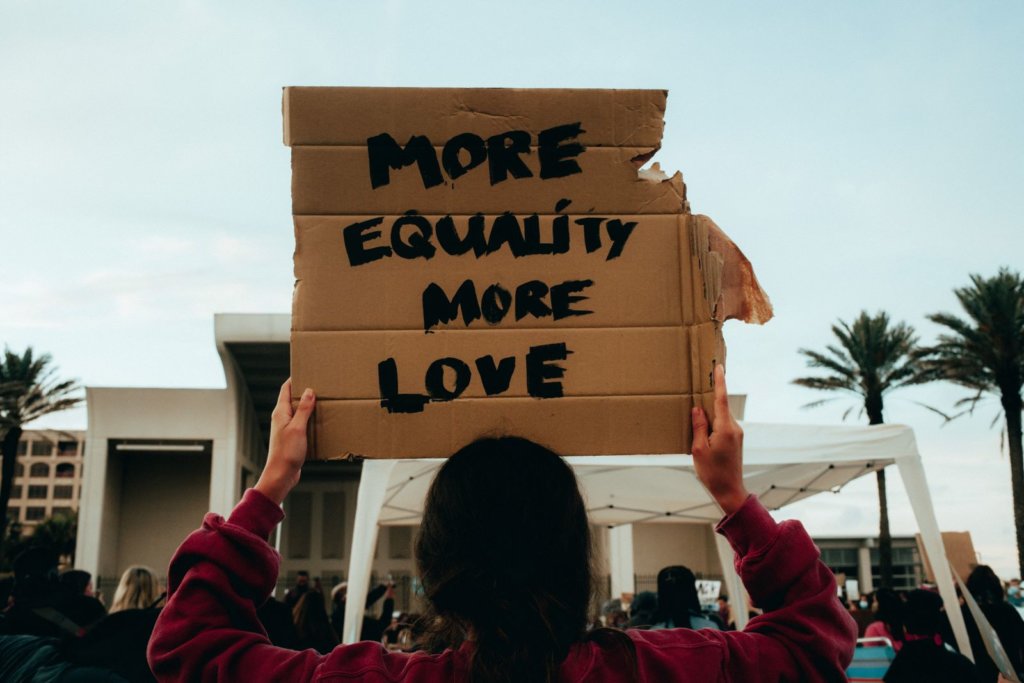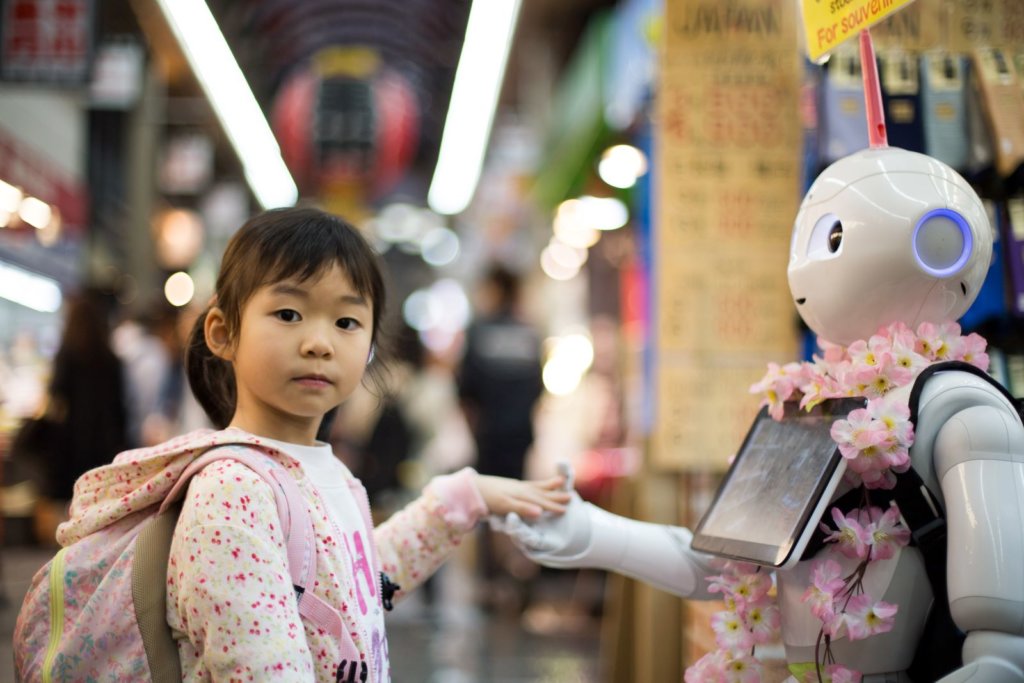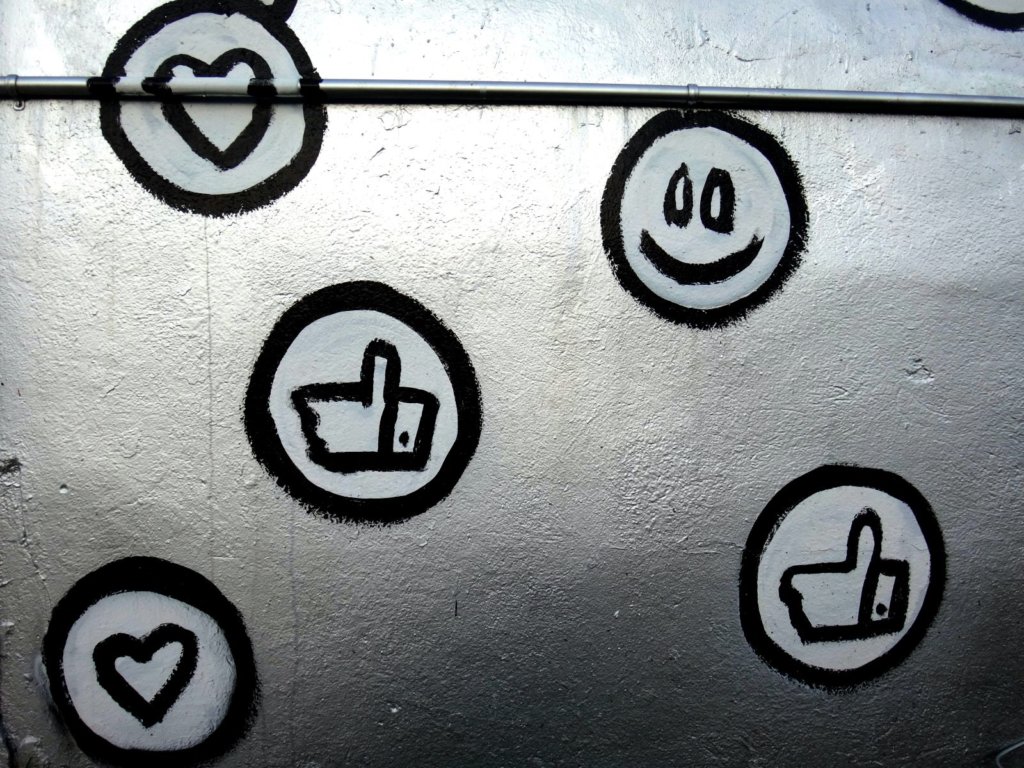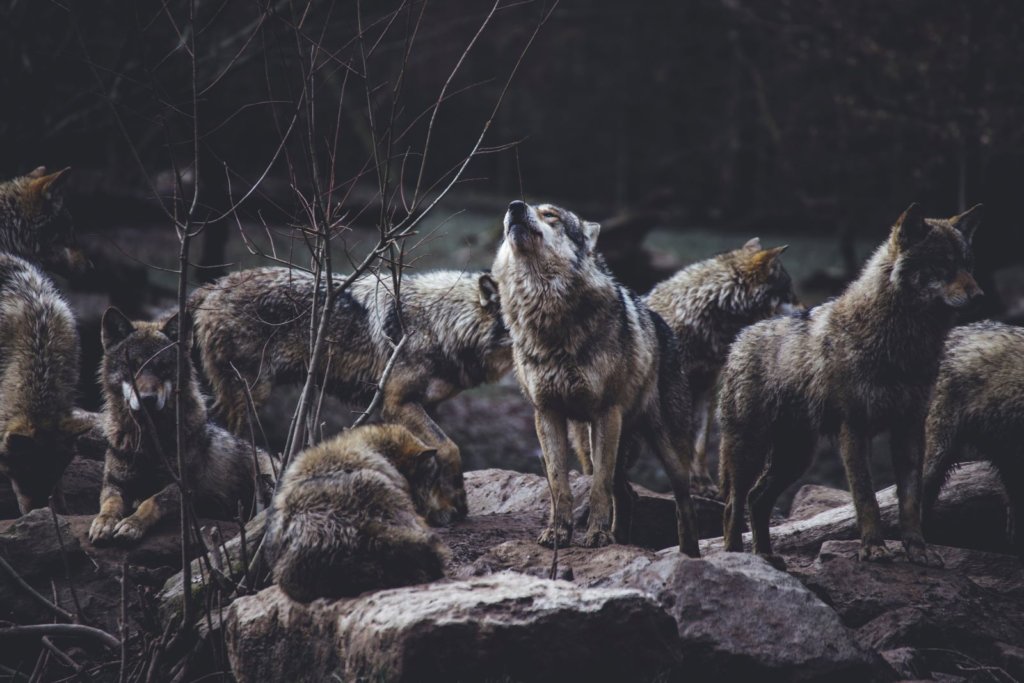My dad told me about a TV show where people try to be the last person to survive in the woods on their own for a chance at winning $500,000. The premise is interesting because it touches on the themes of competition, human versus nature, and also resourcefulness. I get the appeal. But what I don’t get is the lengths people will go to in order to win.
One contestant swam into a frozen lake in an attempt to catch some fish knowing she’d get hypothermia. She explicitly told the camera she knew that would happen. The woman could have tapped out of the show at any time and said, “You know what? The $500,000 isn’t worth it. Take me to the grocery store,” but she didn’t. She literally risked her life all for what? Money. Money that frankly won’t last very long considering the rate of inflation.
Desperation is real and it pushes people to do things they otherwise wouldn’t. But this woman wasn’t a member of the Donner party, starving to death in the middle of winter. She was in a situation of contrived and self-inflicted desperation. I don’t fault this woman; I don’t know her or her story. She made her choice freely. No, instead what I fault is the toxic worldview pervading our society that lauds this sort of decision: materialism.

I agree! More equality, more love! Photo by Cody Pulliam on Unsplash
My favorite summary of materialism comes from a friend who says, “Under materialism, only matter matters.” Exactly. In a materialistic society, money and possessions are more important than love, community, and life. Not everyone is willing to become hypothermic for cash, but over and over again, we demonstrate human life isn’t worth more than money in indirect ways: child labor, exploitative working conditions, polluting the environment, etc. We are poisoning and killing one another for something ephemeral.
I’m not here to say money is unimportant because that’s a lie. It is important, but it’s not the only thing that matters. The worldview I use stems from tantra and my friend sums it up by saying, “Under tantra, everything matters.” What he means is matter matters. People matter. The environment matters. Spirituality matters. Under tantra, you take it all into account. Money is not the bottom line every time.
We take it for granted that materialism is the only way to operate in the world but it’s not. It’s a belief system and belief systems can change. A little religious inspiration for you that’s appropriate considering this time of year: Hanukkah isn’t really a story about oil lasting for eight days. It’s the celebration of people unifying against oppression and winning.
A quick recap: Judah and the Maccabees revolted against Syrian King Antiochus in 160 BCE. He enacted a series of harsh decrees against the Jews, including forcing them to give so much of their crops to the Syrian ruling class, the Jews had trouble feeding their families. Jewish worship was forbidden; scrolls were confiscated and burned. Sabbath and dietary laws were prohibited under the penalty of death. This small group of Jewish rebels fought against an army of thousands of men and won.
My rabbi, Michael Lerner, says, “Hanukkah is not just about having a response to the consumption craze around Christmas, it is about affirming a different worldview, a hopeful worldview. [It’s] about replacing cultures of domination with a culture of love and justice.”
We already have examples of worldviews toppling. We know it can be done because it’s been done before. We don’t need to keep operating as if materialism is the only game in town because it’s not. There’s another way to live, a better way. One in which we recognize the importance of bodies, minds, and spirits.
I dream of a world where we topple materialism. A world where we say, “No, materials are not the most important thing in existence.” A world where we recognize the existential value of all life forms. A world where we replace a culture of domination with one of love and justice.
Another world is not only possible, it’s probable.
Artificial intelligence (AI) has been on my mind because as you’re likely aware, the Lensa AI app that creates “magic avatars,” or in other words digital art, went viral and jumped to number one in the Apple App store recently. Not only that, ChatGPT gained more than a million users in five days around the same time. The AI program can create A+ academic papers and Netflix-worthy scripts.
It’s both exciting and terrifying. Terrifying because as a writer and an artist I’m starting to wonder, “Will I be obsolete soon?” And sure, AI could save me a lot of time and replace the boring writing I don’t want to do anyway such as “compare and contrast the best-selling fertilizers currently on the market,” but still. When I think about AI, my stomach clenches and my whole body gets tense. If AI can do what I do, only better in some instances, what does that mean for me?
The first, obvious answer is I’m so much more than what I do. I’m not only a writer. I’m a daughter, a sister, a friend, etc. The relationships I have with people matter, a machine cannot yet replace my presence, but also the essence of who I am matters. Regardless of whether I never write another word again, I have existential value. My spiritual teacher says over and over again, “Nobody is unimportant, nobody is insignificant. Each and every existence is valuable.” So there’s that.

Humans and robots. More to come. Photo by Andy Kelly on Unsplash
But there’s also a more intangible something I bring. Cosmic consciousness, Brahma, Source, whatever name you have for it, is coming to know itself through me. I am in partnership with the divine to create something new. AI by its very nature is derivative. You literally have to feed AI loads and loads of information for it to “learn.” AI pulls from what’s already in existence and that is one of the criticisms of Lensa AI – it sampled from human artists without acknowledging or paying them for their work.
As a human being, I can create something new. I can be a conduit for the divine. Indeed, my spiritual teacher says artists are pioneers. They are at the vanguard of society, leading them toward “true fulfillment and welfare by providing the inspiration for service.” Art is not just about showcasing what’s inside my own head, but a way to spur people forward, to inspire, to encourage, and to hopefully put people in touch with something greater than themselves.
Another quote for you: Artists “have to cleanse all that is turbid, all that is inauspicious in individual life in the holy waters of their universal mentality, and then convey it sweetly and gracefully into the heart of humanity. Herein lies the fulfillment of their service, the consummation of their practice.”
How can AI possibly convey a universal mentality sweetly and gracefully into the heart of humanity? How can AI talk about the touch of the eternal and hint at something that lies beyond the mind when it’s not something to comprehend but rather feel and experience? It can’t. Not unless it copies a human being and therein, once again, my value is evident.
I dream of a world where we understand even if we’re all out of work, we still matter. A world where we recognize while AI is better than humans at some things, it’s not better at everything. A world where we hold true to the understanding there is still value in being human, no matter how much AI advances.
Another world is not only possible, it’s probable.
I’m working on a novel about a 32-year-old woman who is deeply insecure but tries to mask it with false bravado. She second-guesses every move but tries to hype herself up by saying, “Go me!” and “I got this,” nearly every chance she gets. When I show small snippets of the novel to a writing group consisting primarily of women around my age, the feedback is positive. They’ve told me it’s highly relatable, either for themselves or because it reminds them of their friends. One woman commented this is the sort of book she’d stay up late reading.
However, when I show small snippets of the novel to a writing group consisting primarily of women around 30 years older than me, the feedback is negative. They compliment the writing itself and praise my strong voice, but hate the character. They say she’s self-indulgent and unlikeable. Same character, different audience.
The novel is very much a work in progress. I haven’t even completed the first draft so I’ll change 10,000 things from now and when I deem it ready for the world so who knows how people will respond at that point? Yet, regardless of the changes I make, the experience reminds me you can’t please everyone all the time and it’s not worth it to try. What strikes a chord with one person will be disharmonious to another. Also, depending on the age and stage of life, the same person will no longer like the thing they once enjoyed!

Likes come and go. Photo by George Pagan III on Unsplash
This happened to me on Saturday night. I went to San Francisco for a play and walked just two blocks from where I used to live near Union Square. It’s a neighborhood filled with hustle and bustle. There are about a million people milling about. Cars are honking, people are chatting, and restaurants are buzzing. When I was 23, I loved Union Square. I wanted to be in the thick of things. My feeling was, “Take me to where the action is!” But now at 38, I don’t want to be where the action is. I want the antithesis of Union Square: a house with a yard on a quiet street.
A friend asked me if there’s anything I miss about living there and I do. I miss the public transportation. I could catch numerous buses and multiple train lines easily whereas now my options are more limited. I miss that part but nothing else. I have zero desire to live in Union Square again but for me at 23, it was a dream come true. People change and their tastes change. Because of that, it’s impossible to please everyone. In marketing, they say if you try to appeal to everyone, you’ll appeal to no one. That’s because your product will become so diluted and bland, no one will be interested.
This principle of “you can’t please everyone” doesn’t only apply to art and commerce. It also applies to life. At this time of year, people are pulled in many different directions. They feel pressured to go to all of the holiday parties, visit their families for 10 days, buy gifts for everyone on their list. They get stretched too thin because they’re worried about displeasing their boss, their family, their friends. But here’s the thing: Someone will always be displeased. It’s just not possible to be everything to everyone and if you try, you’ll wind up burned out and resentful.
The more I recognize someone, or rather many someones, won’t like me, my art, my blog, my behavior, or heck, the way I style my hair, the better off I am because it’s inevitable. It’s not bad or wrong, it’s just a fact of life. It’s probably for this reason you’ve seen the overused quote wrongly attributed to Oscar Wilde that says, “Be yourself. Everyone else is already taken.”
I dream of a world where we remember people like different things. A world where we understand not only do other people have varied tastes, but our tastes change too. A world where we recognize it’s more important to take care of ourselves than to engage in people pleasing. A world where we remember we won’t be able to please everyone.
Another world is not only possible, it’s probable.
I learned something fascinating recently: The idea male and female wolves compete to become dominant within packs is inaccurate. This competition only occurs in zoos and not in the wild. In 1944, Rudolph Shenkel, a biologist, first observed this behavior of vying for dominance in wolves at a German zoo but in the subsequent years, David Mech studied wolves in the artic and found wolf packs are families. In other words, the “alpha male” is the dad and the “alpha female” is the mom. The rest of the pack follows their lead because they’re the offspring, not because they fought a battle and lost.
While I find this little tidbit interesting, what intrigues me more is why the idea of the alpha male and female continues to percolate in our society. I think it’s because we want to use nature as an excuse for why we do the things we do and in a patriarchal, capitalistic society, an alpha is paramount.
In a patriarchal society, men and so-called masculine traits are at the top of the hierarchy. Under patriarchy, we value strength, power, and force. The strongest, most powerful are lauded and anyone or anything considered weak and feeble is disparaged. Men are at the top of the ladder and women are at the bottom, but it’s a continuum so while men who are perceived as more feminine are looked down upon, they are still above women in the power structure.

No alphas. Only parents. Photo by Thomas Bonometti on Unsplash
Through that lens, of course the idea of an alpha male is appealing because an alpha male is the epitome of what we praise under patriarchy. Capitalism feeds into the idea of the alpha because under capitalism, there’s the idea only one person can be in charge. Capitalism operates under a scarcity model – if there’s more for you, there’s less for me. That applies to not only money but power, resources, you name it.
We try to point to nature to say, “See? What we’re doing is only natural,” but over and over again, nature shows us collaboration is the name of the game. For instance, neighboring trees help each other through their root systems either directly, by intertwining their roots, or indirectly, by growing fungal networks around the roots that serve as a sort of extended nervous system. German forester Peter Wohlleben said, “If every tree were looking out only for itself, then quite a few of them would never reach old age.”
Also, bonobo females make lasting friendships and don’t tolerate aggressive males; the friendliest bonobos are always the ones with the most offspring. Ants and bees work together to make colonies and hives. I could keep going because examples of collaboration are endless. Instead of saying what we humans are doing is natural, it’s time to recognize we’re the anomaly. If we want to thrive as a species, we must cooperate with one another.
To quote my spiritual teacher, “Only the cooperative system can ensure the healthy, integrated progress of humanity, and establish complete and everlasting unity among the human race. People should work to enjoy sweeter fruits by establishing the cooperative system.”
Let’s enjoy those sweet fruits and start by retiring the mode of living like an alpha. Instead, let’s continue to take our cues from wolves and live like a universal family.
I dream of a world where we recognize the idea of an alpha male and an alpha female has outlived its usefulness. A world where we understand nature shows us over and over again that to survive and thrive we’re better off cooperating with one another. A world where we continue cooperating because we care about the progress of ourselves and the rest of humanity.
Another world is not only possible, it’s probable.